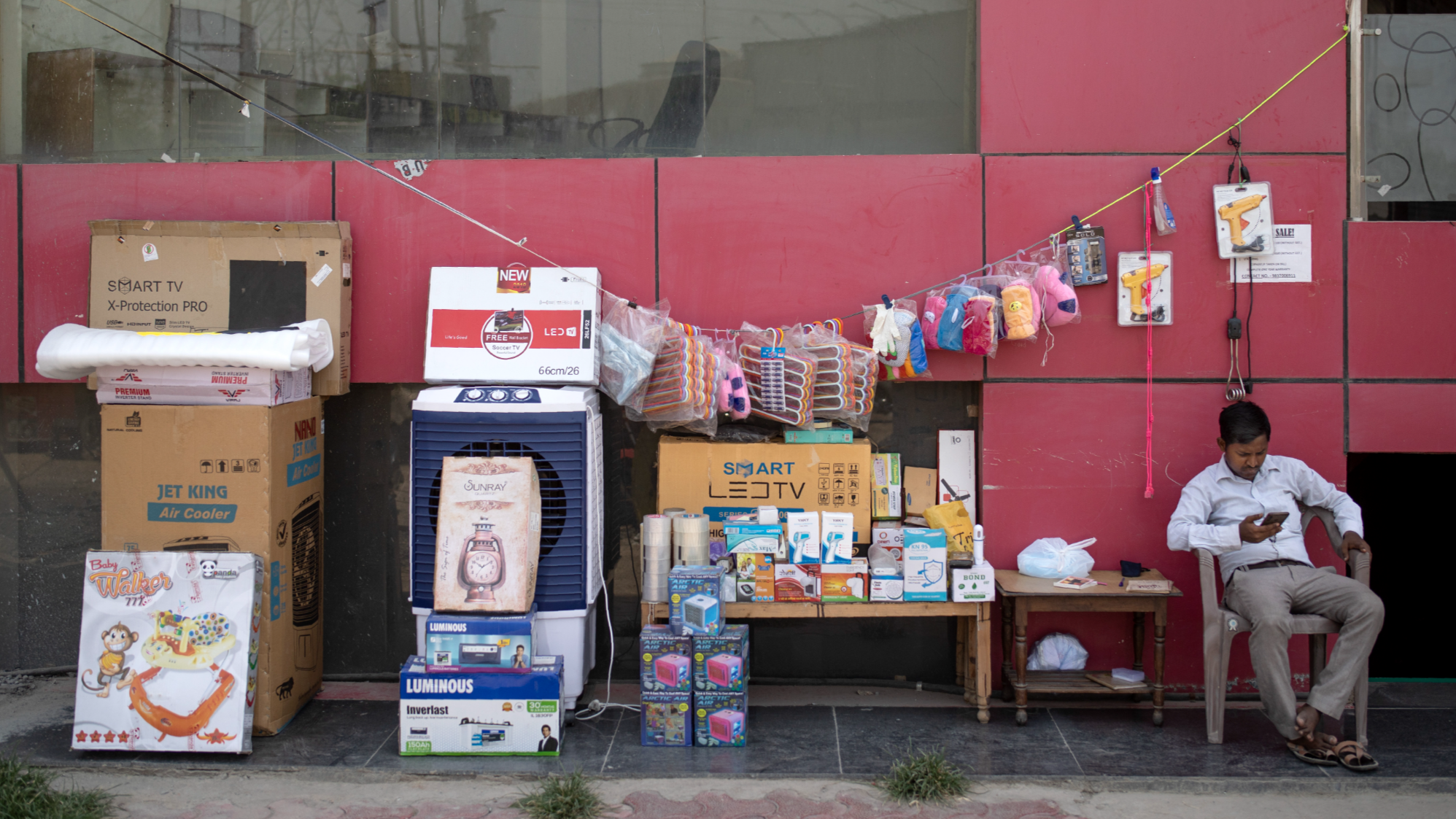
Indian importers will continue to bring in Chinese goods and these products will remain dominant in the local market despite recent duty hikes by authorities, analysts said, as statistics showed that China retained its spot as India’s largest import partner.
The financial year 2023-24 saw goods inflows from China increasing 3.29 percent year-on-year to $101.74 billion, even as there was an overall 5.66 percent decline in the total goods imported by India, according to the Global Trade Research Initiative, or GTRI.
In a move to shield local manufacturers from the impact of cheap imports, India on June 28 imposed anti-dumping duties on three Chinese products — hydraulic rock breaker, Telescopic Channel Drawer Slider, and easy open ends of tin plate
The figures across essential and strategic sectors such as electronics, pharmaceuticals, and renewable energy highlighted the depth of India’s import dependence on China, the GTRI said.
READ MORE: China, India urged to bolster win-win ties, diversify trade
China and India are the world’s two largest emerging markets and developing countries. Bilateral trade in 2023 reached $136.2 billion, and China once again became India’s largest trading partner.
India will continue to import Chinese goods because no other manufacturers can compete with their Chinese counterparts because of their huge economies of scale, Biswajit Dhar, former professor at the Centre for Economic Studies and Planning at Jawaharlal Nehru University in New Delhi, said.
However, in recent months, India has been taking a harder line on more Chinese imports. In a move to shield local manufacturers from the impact of cheap imports, India on June 28 imposed anti-dumping duties on three Chinese products — hydraulic rock breaker, Telescopic Channel Drawer Slider, and easy open ends of tin plate.
These duties were imposed following a recommendation by the directorate general of trade remedies, or DGTR, an investigative arm of the commerce ministry. The DGTR concluded in its probe — conducted following complaints by India businesses that the dumping of these goods had impacted domestic industries.
On hydraulic rock breakers, the duty ranged between 4.55 percent and 162.5 percent of CIF (cost, insurance, freight) value in US dollars. Similar duty was also imposed on these goods coming from South Korea.
These breakers are used in the construction and mining industry for demolition, excavation, mining, and boulder-breaking activities.
"The anti-dumping duty imposed (on these breakers)... shall be effective for a period of five years (unless revoked, superseded or amended earlier)," according to a notification issued by the department of revenue, a wing of the federal finance ministry.
Similarly, an anti -dumping duty was imposed on imports of “easy open ends of tin plate, including electrolytic tin plate, measuring 401 diameter (99mm) and 300 diameter (73mm) in dimension” from China for five years. These plates are used in the packaging of consumables and other items such as fresh and preserved food and beverages.
New Delhi also imposed a provisional anti-dumping duty of $614 per ton on imports of “Telescopic Channel Drawer Slider” from China for six months.
The move comes as part of India's commitment to the World Trade Organization regime, where countries initiate anti-dumping probes to assess the impact of below-cost imports on their domestic industries.
The anti-dumping duty is meant to determine whether domestic industries have been hurt because of a surge in cheap imports. It is not aimed at restricting imports or causing an unjustified increase in the cost of products.
Since September last year, India has launched a spate of anti-dumping investigations into made-in-China products, including vacuum-insulated flasks, tempered glass, unframed glass mirrors and retractable drawer sliders and aluminum foil following complaints by domestic players.
It is common for countries to adopt an anti-dumping policy when import prices of certain imported goods fall below costs in the source country due to state subsidies, which is considered as an unfair trade practice
“India’s dependence on Chinese goods continues to grow. India still has a trade deficit with China. But it’s more expensive for Indian importers to import from the United States, Europe or elsewhere,” said Amit K. Biswas, from the department of economics and politics at Visva-Bharati University in Santiniketan, West Bengal.
It is common for countries to adopt an anti-dumping policy when import prices of certain imported goods fall below costs in the source country due to state subsidies, which is considered as an unfair trade practice.
China has been accused of offering its industries unfair subsidies by the United States on many occasions.
READ MORE: Time for Beijing, New Delhi to collaborate for shared goals
It is important for a country that is affected by another nation’s anti-dumping policy to reveal implicit subsidies, if any, to argue its case, said Sugata Marjit, first distinguished professor, Indian Institute of Foreign Trade in New Delhi,
Anti-dumping policies are not meant as long-term structural incentives to the domestic industry, but to ensure that local producers are not unnecessarily hurt by the cheap imports, Marjit said.
Dhar suggested that apart from the imposition of anti-dumping duties, India can adopt countervailing duties like providing subsidies to domestic manufacturers, and “safeguard duties” to prevent a sudden surge in imports of any particular product.
The writer is a freelance journalist for China Daily.


